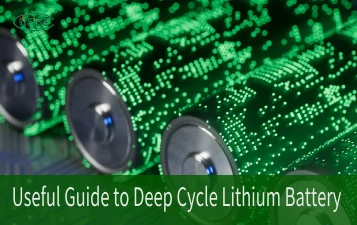Laptop batteries are indispensable, empowering portable computing and enabling users to work, study, or entertain themselves without being tethered to a power outlet. This article explores various types of laptop batteries and essential maintenance techniques.
Part 1. Types of laptop batteries
Lithium-ion Batteries (Li-ion)
- Most Common: Li-ion batteries are prevalent in modern laptops due to their high energy density and lighter weight than other battery types.
- No Memory Effect: They don’t suffer from the memory effect, allowing users to charge them partially without reducing their overall capacity.
- Longer Lifespan: Li-ion batteries generally have a longer lifespan than other battery chemistries if adequately maintained.
Lithium Polymer Batteries (Li-Po)
- Enhanced Flexibility: Li-Po batteries are more flexible in shape and size, allowing manufacturers to create thinner and more compact laptop designs.
- Lightweight: Similar to Li-ion batteries, they offer lightweight solutions for ultra-portable laptops and devices.
- Lower Profile: Their flat and flexible nature makes them suitable for unconventional laptop designs and configurations.
Nickel-cadmium Batteries (NiCd)
- Older Technology: NiCd batteries were commonly used in earlier laptop models but have been largely replaced due to their lower energy density and toxic cadmium content.
- Memory Effect: These batteries are susceptible to the memory effect, reducing their capacity if not fully discharged before recharging.
- Environmental Concerns: The presence of cadmium makes NiCd batteries environmentally unfriendly, contributing to their declining usage.
Nickel-Metal Hydride Batteries (NiMH)
- Moderate Energy Density: NiMH batteries offer an average energy density, falling between NiCd and Li-ion batteries.
- Reduced Memory Effect: While less prone to memory effect than NiCd batteries, NiMH batteries still benefit from occasional total discharges for optimal performance.
- Eco-Friendlier Option: NiMH batteries are more environmentally friendly than NiCd batteries due to the absence of toxic cadmium.
Solid-State Batteries (SSBs)
- Emerging Technology: SSBs are a promising advancement in battery technology, using solid electrolytes instead of liquid or gel electrolytes in traditional batteries.
- Improved Safety and Stability: They offer enhanced safety, higher energy densities, and potentially longer lifespans than conventional batteries.
- Potential for Future Integration: Although still in the developmental stage, SSBs could revolutionize laptop batteries by providing higher capacities in smaller, safer form factors.
Part 2. Importance of a reliable laptop battery
Enhanced Productivity
A reliable laptop battery is crucial for uninterrupted work. It ensures that professionals, students, and anyone reliant on their laptops can continue their tasks without disruptions caused by sudden power failures or the constant need to be tethered to a power outlet.
Portability and Mobility
The essence of a laptop lies in its portability. A reliable battery extends this advantage, enabling users to work or perform tasks while moving. This aspect is particularly significant for travelers, remote workers, and individuals who work in various locations without immediate access to power sources.
Work Efficiency and Flexibility
A consistent and long-lasting battery allows individuals to structure their work schedules without constraints. They can choose where and when to work without being limited by the availability of power sockets, fostering a more flexible and efficient workflow.
Avoidance of Data Loss
Abrupt power loss can lead to data loss or corruption, especially if work or projects are not saved correctly. A dependable battery mitigates this risk by providing ample time to save documents and safely shut down systems.
Part 3. Laptop battery care tips
Avoid Extreme Temperatures
- Avoid Heat Exposure: High temperatures can degrade battery health. Keep laptops away from direct sunlight and avoid leaving them in hot environments like a closed car during summer.
- Cold Temperatures: Extremely low temperatures can also affect battery performance. Avoid exposing laptops to freezing temperatures for extended periods.
Optimal Charging Practices
- Avoid Overcharging: Continuously leaving a laptop plugged in after fully charged can stress the battery. Unplugging it when fully charged helps preserve its longevity.
- Partial Charging is Okay: Unlike older battery types, modern lithium-ion batteries don’t suffer from the memory effect, so partial charges don’t harm them.
Calibrate the Battery
- Regular Full Discharges: Occasionally, allowing the battery to fully discharge before recharging can recalibrate the battery’s power gauge, providing more accurate readings of the remaining charge.
Mindful Usage Patterns
- Power-Hungry Tasks: Intensive tasks like gaming or video editing drain the battery faster. Use them sparingly if you need to be plugged into a power source.
- Reduce Background Processes: Limit unnecessary applications or background processes that consume battery power unnecessarily.
Proper Storage Techniques
- Charge Level for Storage: If storing a laptop for an extended period, maintain the battery charge at around 50%. Avoid storing it fully charged or fully depleted.
- Store in a Cool, Dry Place: Store laptops in a relaxed, dry environment with moderate temperatures to preserve battery health.
Regular Care
- Keep the Laptop Clean: Dust and debris can impact a laptop’s cooling system, causing it to overheat and affecting battery performance—regularly clean vents and fans.
- Software Updates: Keep the Laptop’s operating system and firmware updated to ensure optimal power management settings.
Invest in Quality Accessories
- Use Genuine Chargers: Using compatible, genuine chargers and accessories recommended by the laptop manufacturer ensures the proper power flow to the battery.
Part 4. FAQs
-
How long does a laptop battery last?
The lifespan of a laptop battery varies based on usage, charging habits, and the specific laptop model. Generally, laptop batteries last around 2 to 4 years before experiencing significant degradation in capacity. -
How do I know if my laptop battery is bad?
Signs of a bad laptop battery include reduced battery life, sudden shutdowns even at higher charge levels, slower charging, or a battery that doesn’t hold a charge for long periods. -
What kills laptop battery life?
Several factors can diminish laptop battery life, including frequent total discharges, exposure to high temperatures, overcharging, and leaving the Laptop plugged in for extended periods. -
How do I restore my dead laptop battery?
Fully restoring a dead laptop battery is challenging and might not always be possible. However, some methods, like recalibrating the battery or performing a deep discharge and recharge cycle, could slightly revive its performance. -
What are laptop batteries made of ?
Laptop batteries typically contain lithium-ion (Li-ion) or lithium polymer (LiPo) cells. These cells have electrodes of materials like lithium cobalt oxide, lithium iron phosphate, graphite, and various electrolytes enclosed in a casing with control circuitry.
Related Tags:
More Articles

Overview of Deep Cycle Lithium Battery
In this article, we explore the life, voltage, capacity, and charging considerations of deep cycle lithium batteries.
How Long do Lithium Batteries Last?
How long do lithium batteries last? we will explore the factors that influence the lifespan of lithium batteries and provide insights into their longevity.
How to Choose the Best LiFePO4 Battery?
Choose LiFePO4 batteries for superior performance, safety, and versatility in EVs, UPS, and backup power. This guide helps you make informed decisions.
Get 12v Lithium Car Battery As a Power Source for the Ride
Make the right choice for your vehicle's battery needs by installing a 12 volt lithium car battery. You will enjoy maintenance-free longevity with this change.
Everything About A Small Lithium Ion Battery
Discover the features, uses & future potential of a small lithium ion battery. A compact and tiny powerhouse ideal for smartphones, wearables, drones & more.





